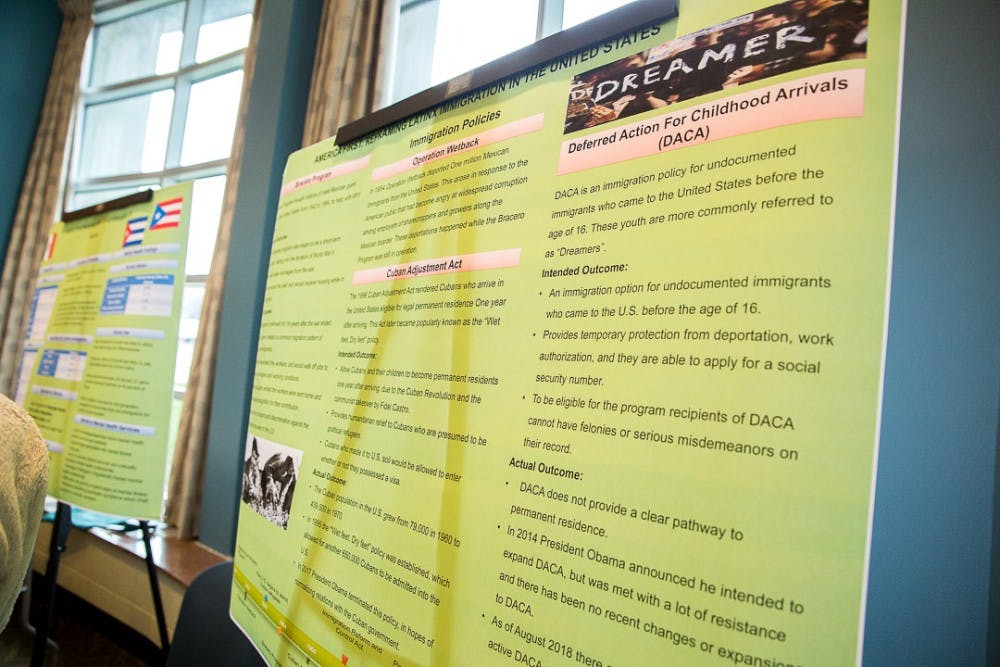Michigan State professors Pilar Horner and Johanna Schuster-Craig teamed up two of their classes from the social work and global studies departments to create a migration teach-in series Thursday and Friday. With the aim to provide an educational experience for the classes and for the MSU community, the series took a look at different issues that immigrants deal with in the United States.
“Our vision was to have one or two-day conference that really began to look at some of the most pressing issues looking around migration today," Horner said.
The event kicked off Thursday at the Eli and Edythe Broad Art Museum with speaker Bianka Huber, founder of “Der Laden” in Frankfurt, Germany. Huber works with refugees to assist with language classes, work placement and housing. They also provide support for workers unions across Germany. Prior to that, attendees were asked to take a look at an exhibit called “If Only We Could Dream Together,” which will be on display at the museum until May 5.
The kick-off event concluded with a panel discussion on the different issues immigrants face in the Greater Lansing area. The panel included local service leaders who work with the migrant community, including Catholic Social Services, the International Rescue Committee and the Refugee Development Center. On the second day of the event, students in Horner’s graduate-level social work class provided education on various issues.
Betsy Fisher of the International Refugee Assistance project attended as the keynote speaker and spoke about her work, which concerns the representation of refugees abroad. The day’s events also included various Michigan community leaders, such as Michigan State House Rep. Abdullah Hammoud, immigration lawyers and non-profit workers.
“I think we need to understand is what is the root cause of what creates a refugee,” Hammoud said. He attended as a speaker via video conference.
Hammoud discussed the actions that lead to refugees, specifically he said wars and countries that attempt to spread democracy can create refugees in the process. He also mentioned the impending issues climate change will create for people needing to flee to other countries and that these impacts are already occurring on smaller scales.
While many students gave presentations, others provided advocacy booths and poster displays on their research topics. One group provided a series of posters about different legal and policy changes the U.S. has undertaken to both bring in and force out people of the Latinx community over the past several decades. They discussed issues like former President Barack Obama disallowing Cubans a quick pathway to U.S. citizenship in order to better relations between the two countries. Another student, social work graduate-student Claire Plagens, created an audio series where she spoke with sexual violence immigration specialists across Michigan.
“I've been in the field for almost five years and I've never interacted with advocating for survivors that are immigrants, non-native English speakers or undocumented," Plagens said. "It seemed like a natural opportunity for me to have those conversations with people who have."
The other coordinator for the event was Daniel Velez Ortiz, an associate professor in the MSU School of Social Work. The Creating Inclusive Excellence Grants program through the Office of Inclusion and Intercultural Initiatives sponsored the event.
“Our policies have global implications," Schuster-Craig said. "One of the things that I've learned by trying to teach this kind of stuff in an American context is that there's a real lack of understanding of global crises beyond our borders."
Support student media!
Please consider donating to The State News and help fund the future of journalism.
Discussion
Share and discuss “Student-led immigration teach-in provides education through advocacy” on social media.







